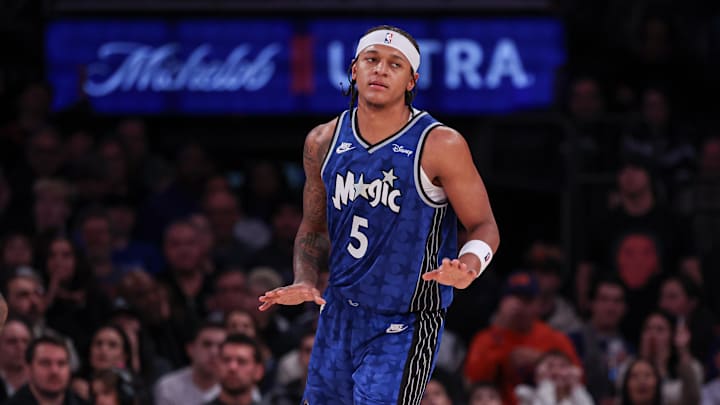Why the Magic's schedule is easier
But dig a little deeper and the Orlando Magic actually may have gotten a beneficial schedule.
Those two stretches of difficult games highlighted above include a lot of home games, where the Magic went 29-12 last year. The Magic beat the Nuggets, Celtics, Bucks and Cavs at the Kia Center. Defending the Kia Center home floor was one of the team's major steps forward last year.
There is more to it though.
According to the website Positive Residual, which does deeper analytics into the schedule, the Magic have the third-easiest schedule in the league next season by their strength of schedule metric. This takes into account more than just opponent win percentage. It looks at back-to-backs and rest advantage/disadvantage.
In both of those categories, the Magic have a major advantage.
The Magic will play a league-low 13 back-to-back this year. There is typically not a ton of difference in back-to-backs—the most in the league is 16. But those three can make a huge difference.
Last year, Orlando had among the most back-to-backs with 15. So the decrease in the back-to-backs is a major advantage for the Magic this year over last year.
But it is a little bit more than that.
The Magic play four of those back-to-backs without travel. That is quite unusual to play so many home-home back-to-backs. They have only five away-away back-to-backs too. And one of those is without travel with the Los Angeles double against the LA Clippers (Nov. 20) and Los Angeles Lakers (Nov. 21).
Orlando will only face three home-away back-to-backs. These can be especially daunting with long travel going away from home. But this year they are only to Memphis (Oct. 26 against the Memphis Grizzlies after the home opener), New York (Jan. 6 against the New York Knicks) and Charlotte (March 25 against the Charlotte Hornets).
The Jan. 6 game against the Knicks might be the only one we can rightfully consider a schedule loss based solely on travel.
The only other bad travel for a back-to-back is a Cleveland-to-San Antonio back-to-back on March 16-17.
On top of this, the relatively geographically isolated Magic are not among the heaviest travel teams in the league this year. They do not rank in the top five in most miles traveled as they typically do. Their week in New York to play the Brooklyn Nets (Nov. 29 and Dec. 1) and New York Knicks (Dec. 3) eliminates a major there-and-back on the team plane.
Orlando also will benefit from more games with a rest advantage—facing teams with fewer nights of rest than them.
The Magic will have 11 games with a rest advantage compared to eight games with a rest disadvantage. Last year, Orlando had one of the biggest discrepancies in the league with eight games with a rest advantage compared to 13 with a rest disadvantage.
Flipping both the back-to-backs and rest advantage games, especially considering how intense, physical and frenetic the Magic can play, could mean the Magic will be tougher to play and be able to take advantage of games they dropped last year when fatigue set in.
In this way, while the Magic may be playing tougher opponents on paper, they may be at an advantage for these games and steal some just because of the nature of the season.
The schedule has set Orlando up better for success this season than the team was even last year. And last year was a runaway success.
That is at least one reason to be excited for the 2025 season. But, of course, they have to play the games. And there are sure to be some surprises along the way that nobody can anticipate.
The countdown to Oct. 7 and the start of the preseason and the season opener Oct. 23 in Miami is very much on.
